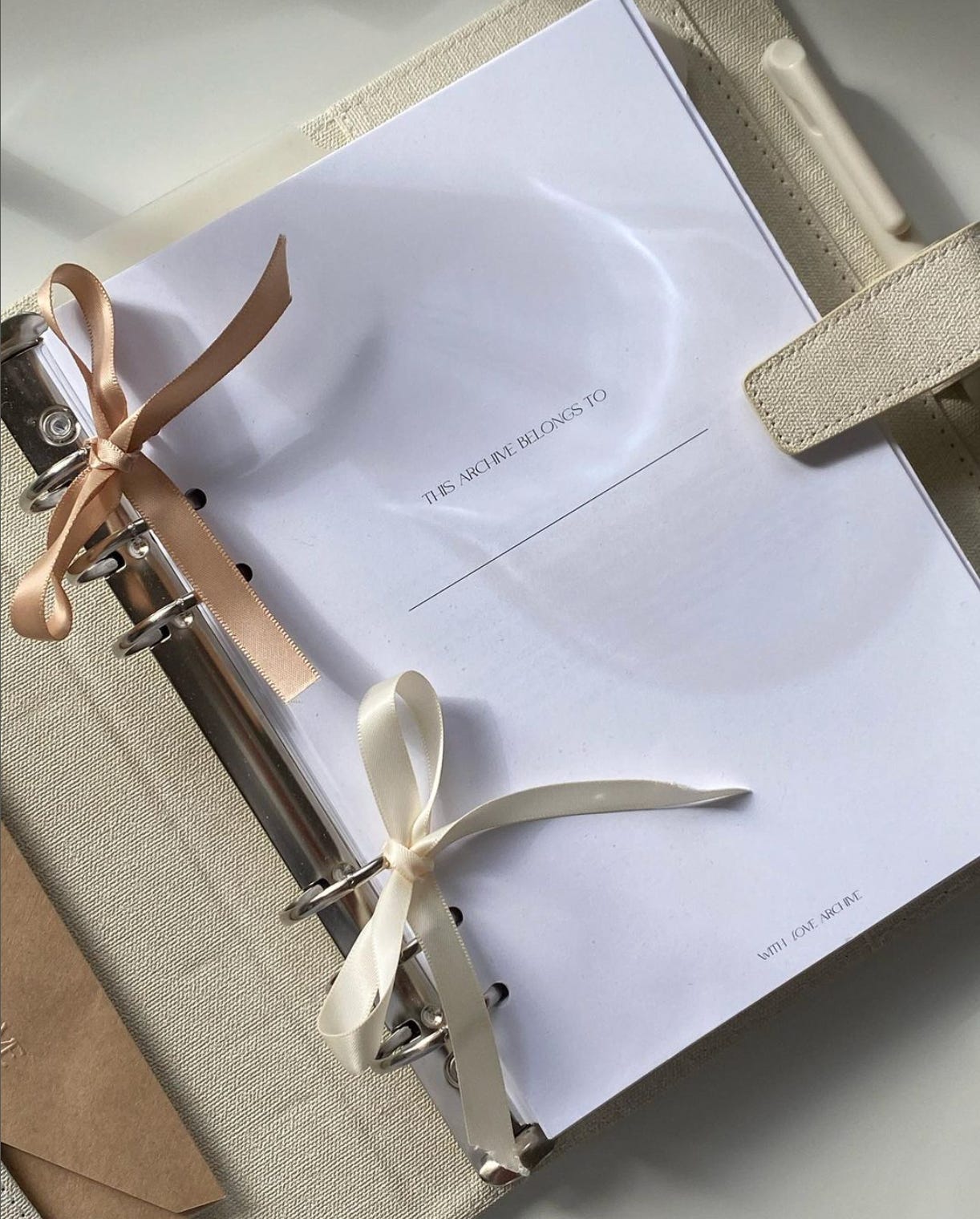an old tradition with timeless, practical benefits for the everyday curator
A million thoughts flit through our mind in a day, but once in a while, we will stumble across an idea that speaks to us on a deeper level and that causes us to pause.
This idea speaks to a part of ourselves longing to be explored, frees a part of us that has been stuck in old beliefs for too long, or maybe encompasses the things that give us hope in every day life.
These are the thoughts worth writing down. They are clues to our curiosities that will inform the decisions our future selves make. They come in all sorts of forms such as quotes, lyrics, poems, spoken words, images, or even dreams.
It always surprises me when people don’t write these thoughts down, especially because I believe everyone has them, even if some less frequently than others.
We all watch movies that make us laugh or cry, we read things that interest us, we have projects and hobbies that perhaps we are striving to grow in, we have conversations with strangers that leave us lighter than before.
Having a place to store tidbits of information that we long to return to is a way to document our development. Not all thoughts are worth dwelling on, and not all thoughts worth dwelling on are easy to remember. So by writing it down in one centralized place, we can hone in on what truly lights us up, ponder the ideas that make us pause, and curtail things of lesser importance, all to grow closer to our true selves.
I’ve been an avid journaller ever since I was a teenager. Journalling helps me become aware of how my heart is doing, it’s a refuge of reflection, a ritual I look forward to at the end of each day. When external pressures cloud my true feelings, journalling helps me return to myself.
I love knowing that many of my inner-most thoughts exist on paper in the hidden corners of my closet. I can look back at a specific date in time and see what I was feeling up to a decade prior, an unfiltered story stored in one place.
But what I’m writing to you about today is different. This is not a reflective, descriptive entry about my day. It’s not a perfect analysis of a topic. It’s doesn’t require your best handwriting.
What I’m describing to you is the commonplace book, an old tradition with timeless benefits for creators, entrepreneurs, and dreamers alike. It’s a repository that stores ideas you can return to later. It’s the first place you go to to note ideas on a certain topic.
The choice is yours as to what content is worth keeping.
The commonplace book goes back to as far as the Roman emperor Marcus Aurelius whose Meditations began as a private collection of notes, thoughts, and quotations. Thomas Jefferson was known to keep a commonplace book for legal references and another for literary ones. Authors Ralph Waldo Emerson, Mark Twain, and Virginia Woolf also practiced commonplacing, in addition to the modern day thinkers like Ronald Reagan and Bill Gates. But despite it being an old and simple practice, and one that requires little effort or expertise, I don’t see many people doing it today.
We live in a distraction-saturated environment that prevents us from perceiving unseen things sometimes. Especially in this digital age where we are given unfiltered access to people’s thoughts online, it’s easy to drown in other people’s mental space without awareness of what sparks that light in us. Easier to move in autopilot without pondering the divine messages all around us. Massive amounts of unprompted information steals our attention through devices attached to our side, making it more difficult than ever to live an intentional, mindful life. At least for me.
Like an act of resistance, I’ve been feeling the urgency to commonplace more than ever, specifically this year while I navigate my 20s, a defining time that sometimes feels a little like stumbling through a thicket. The act of archiving ideas is like finding clues to a map of my inner world.
I get excited when a quote lights me up because it encourages me to explore where I am and where I want to be. Be it about love, work, self-development, faith, or creativity—I love filling my commonplace book with words that reveal new nuggets of wisdom every time I look at it.
I like to use a simple, blank notebook to write quotes. But for the visual people, other forms of commonplacing may be scrapbooking, mood boards, or list-keeping.
In a way, this space on the internet is like a digital commonplace book. Where journalling nudges me to document what has happened, commonplacing calls me toward what could be. It makes me alive to the frequencies of love and reminds me that I am the curator of my life.
Let’s recap the benefits of commonplacing!
- helps you remember things that matter to you
- documents your development
- process the vast amounts of information you receive
- enables you to archive and reflect on what you keep
- lets you become the curator of your life
Now, I’d love to hear from you. Who’s commonplace book would you be curious to peek at, and why? If you already have a commonplace book, what’s one of the latest things you wrote down in it?
Curate your story with the WLA Planner here.
This piece is written by contributing writer Elisa Nguyen for With Love Archive

